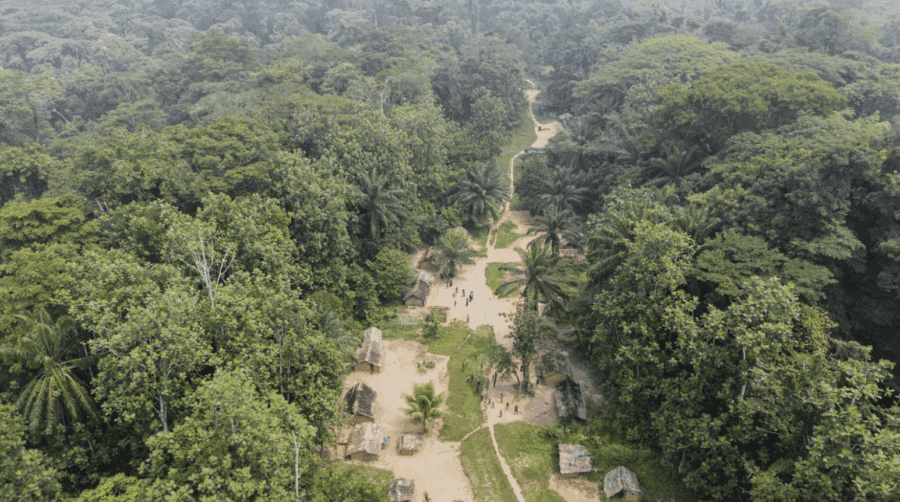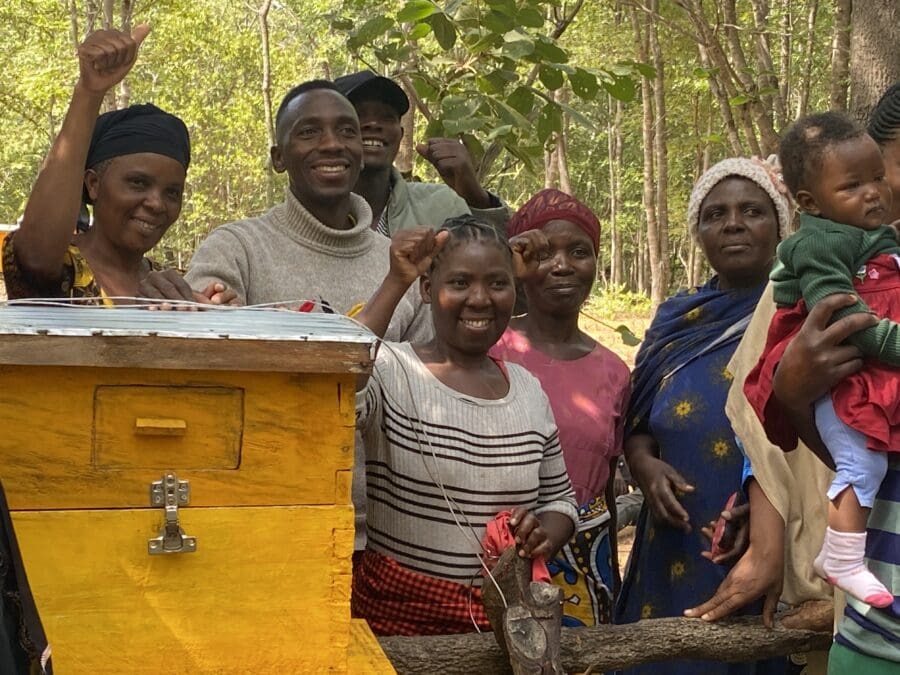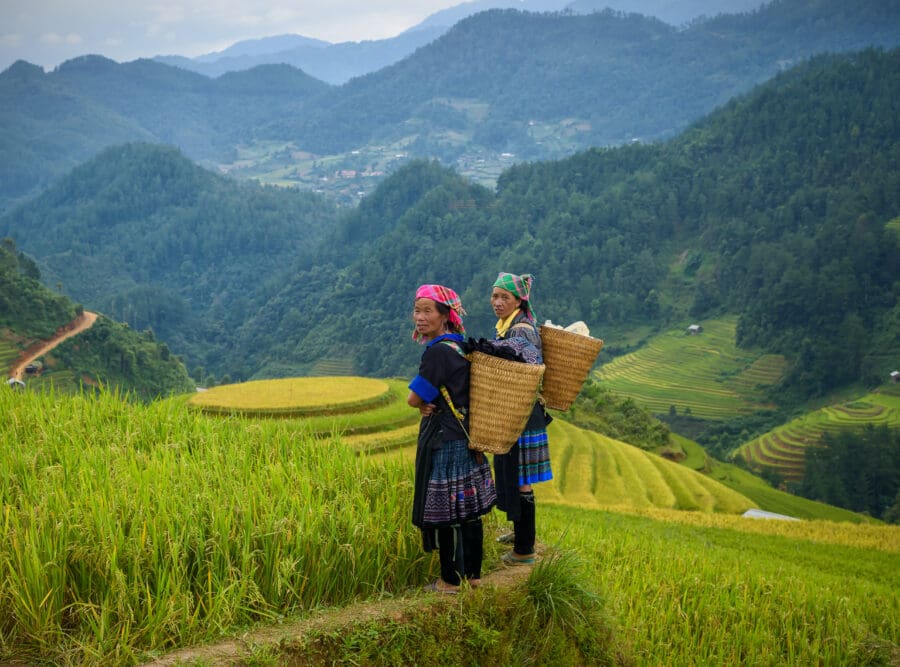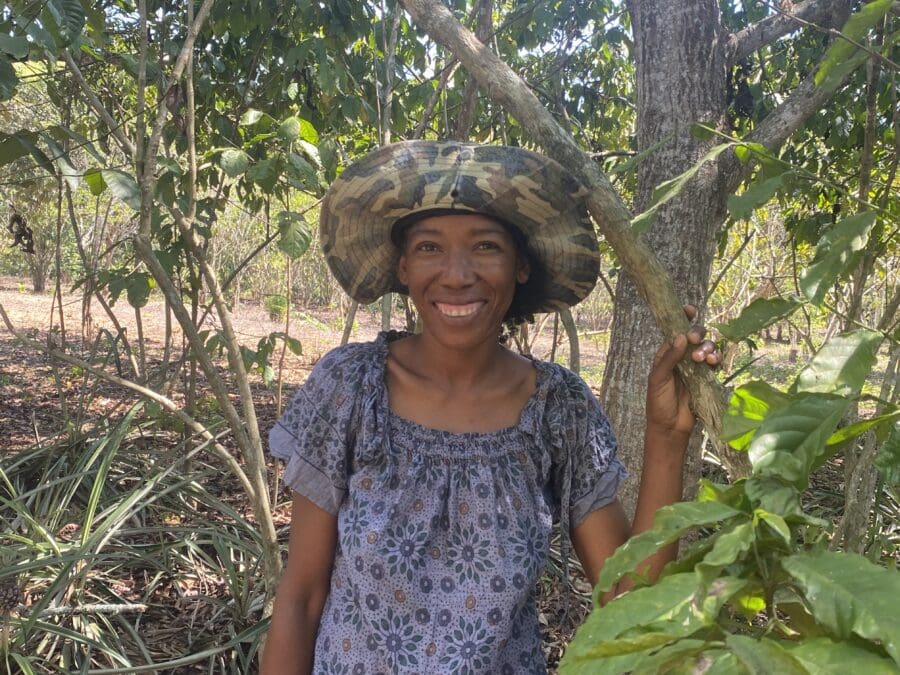Hundreds of Indigenous Peoples (IPs) and local community (LC) representatives from the world’s largest tropical forest basins held a historic convening on May 26–30 with government representatives, international development institutions, and donors to present their demands ahead of the next UN Climate Conference in Brazil (COP30).
The First Global Congress of Indigenous Peoples and Local Communities from the Forest Basins was organized by the Global Alliance of Territorial Communities (GATC) and co-convened with the Rights and Resources Initiative (RRI). It brought together Indigenous elders, community leaders, women, and youth from the Amazon, Congo, Borneo-Mekong-Southeast Asia, and Mesoamerica together with allies from across the world.
Each of the four territories is essential to preserving the Earth’s biodiversity and carbon balance, with vast amounts of land claimed by Indigenous Peoples and local communities.
“Our collaboration in this Congress across continents, traditions, and generations is a powerful reminder that strength lies in collective action. We are ready to continue using the depth of our knowledge and our spirit of cooperation to set a common path toward a just, livable, and equitable future.”
~ The Brazzaville Declaration
The final Congress Declaration, A Unified Path to COP30 and beyond, was presented as a unified commitment by the signatories to People, their Territories, the Planet, and Partnership. Its demands to governments and the international community centered on five key principles:
- Recognize, protect, and secure their land rights and tenure and treat them as a climate mitigation policy.
- Protect their territories and leaders from criminalization and prevent rollback of existing rights.
- Respect their Free, Prior, and Informed Consent in decisions affecting their lives and ecosystems, making it a precondition of approval to all climate initiatives that affect communities’ lands.
- Recognize and respect Traditional Knowledge, Science, Practice, and Innovations, and integrate them with other sciences to respond to environmental crises.
- Give them access to direct finance, including climate and biodiversity finance, using their own global, regional, national, and sub-national funding mechanisms, and restructure all other mechanisms in partnership with them.
To achieve these demands, the GATC leaders proposed a 22-point action plan for governments and international institutions. The plan calls for all finance mechanisms for climate, biodiversity, and environmental protection—including the Tropical Forests Forever Facility (TFFF)—to include IPs and LCs in their governance and decision-making structures and stipulate a minimum allocation of 20 percent of direct financing for IPs and LCs.
GATC is currently helping to co-design TFFF, a new large-scale funding mechanism for the protection of tropical forests, along with its secretariat and the World Bank.
“The 20% figure should be seen as a floor, not a ceiling, and should be monitored and periodically reviewed in consultation with rightsholders.”
– The Brazzaville Declaration
For TFFF, the declaration added that IP- and LC-led funds can serve as national implementing agencies in conjunction with other governance arrangements suited to each country. Ensuring that IPs and LCs are represented in its governance and blocking any funding that stems from activities that involve harmful exploitation of community lands or violation of their rights would help TFFF ensure transparent management and effective disbursement.
The Brazzaville Declaration also proposed that the new IP and LC Forest Tenure Pledge, expected to be announced in the lead up to COP30, must direct at least 40 percent of its funds directly to IP- and LC-led funds and organizations. It called on public, private, and philanthropic donors to facilitate capacity-building programs in partnership to rapidly and sustainably strengthen IP- and LC-led organizations to manage direct funding instead of relying on intermediaries or shrinking chains of non-local actors.
“It is not just about money; it is about friendship and solidarity. The answer is us. All of us. Let’s walk together and create a better funding environment for all IPs and LCs. We have our mechanisms already, let’s test them out!”
– Rukka Sombolinggi, Secretary General of AMAN and GATC leader from Indonesia
Included in the 22-point action plan was a demand for all governments to explicitly acknowledge and prioritize the legal recognition of IP and traditional territories in their Nationally Determined Contributions and National Biodiversity Plans (NBSAPs). Demands directed at governments also included:
- Governments of the Congo Basin: Simplify land titling procedures while integrating Indigenous lands into national land-use plans, and legally recognize all IP territories, reforming land laws (with or without ICCAs).
- Governments of Mesoamerica: Expedite 2 million hectares under IPs’ and LCs’ control and increase direct territorial investment to 30 percent by 2027. Over 51 million hectares across the Mesoamerican region require community titling, recovery, or strengthened control.
- Government of Brazil: Demarcate the 32 Indigenous lands that are currently in a declaratory phase by COP30; remove intruders from all demarcated and registered territories; and urgently overturn Law 14.701/2023, which undermines IP rights.
- All Latin American countries: Urgently ratify the Escazú Agreement and implement it with mechanisms that guarantee full and effective participation of IPs and LCs in its governance structures.
- All governments in the Global South: Enact a global convention to protect Environmental Human Rights Defenders, including IP and LC leaders working to stop fossil fuels, mining, and other destructive activities in their territories.
Going forward, the signatories asserted their readiness to meet again next year, stating:
“This declaration is our collective offering to the world: a commitment to work together—across geographies, sectors, and generations—to safeguard our Mother Earth for all. We are galvanized in our actions, but we are running out of time, and to change everything, we need everyone now. We call on our brothers and sisters, women, youth and elders from Indigenous Peoples, local communities, Afro-descendent Peoples, our allies, our partners, and all governments to join us now. The answer is us, all of us!”






